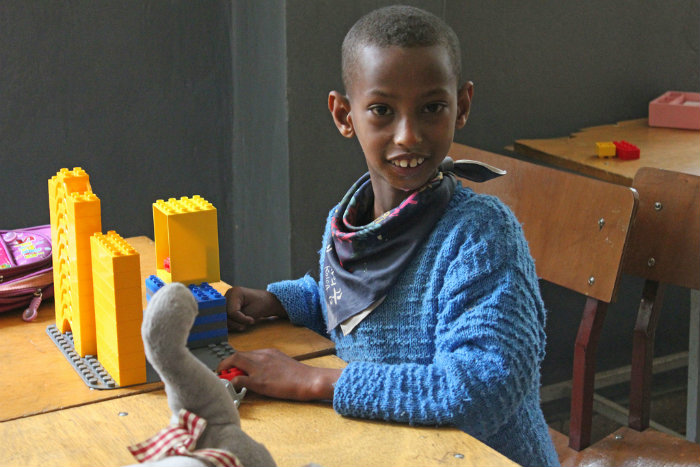By: Joshua Howgego
Send to a friend
The details you provide on this page will not be used to send unsolicited email, and will not be sold to a 3rd party. See privacy policy.
The UK parliamentary committee for international development recently conducted an inquiry into the UK government’s approach to disability in its global development work. [1] One major recommendation was for the UK Department for International Development (DFID) to set out a disability strategy, with one minister suggesting that “people with disabilities have been treated as an afterthought”, in a Guardian report published last month. [2]
Susie Miles, a researcher in inclusive education who gave evidence to the inquiry, says that such a strategy would be a great step forward, but believes developing it will be highly complex and will require long-term commitment. Miles, who is based at the University of Manchester, United Kingdom, tells me there is a huge diversity of views about best practice in disability and development work, and this will make it difficult for DFID to develop an overarching strategy.
When I ask if research could help by providing evidence about best practice, she seems hesitant. But reflecting on her own specialism, the education of disabled children, she says there is an “urgent need” for research on how best to provide services to disabled people.
“The issue of disability has been at the bottom of priority lists for too long.”
Susie Miles, University of Manchester
But she sounds two notes of caution. First, she says, it can be hard to do effective research into disability because of the extent to which disabled people are marginalised in low and middle-income countries. “In many parts of Sub-Saharan Africa, for instance, it is difficult to get a pair of glasses, and hearing aids are almost impossible to find,” Miles says. Without such items, along with appropriate and flexible teaching methods, children may not be benefit fully from being in school — if they attend at all — and so it’s hard to see how their learning can be equitably measured, she says.
Second, Miles points out that there has been a shift in the development community’s thinking on disability in the run up to the post-2015 global development goals. There is now a focus on measuring ‘learning outcomes’, recognising that it’s not enough to simply count how many children enrol into school or an aid programme, and that the quality of education is key to success, she says.
But this concept comes with its own complications. “There was a lot of concern at the inquiry about having funding linked to measurable learning outcomes,” says Miles. She warns that simply measuring disabled persons’ academic performance fails to appreciate that inclusion is a complex social process that extends beyond the classroom.
In the meantime, one area where research could help is in providing an evidence base for how best to train teachers to support the disabled pupils who do attend school, she says. Until recently in Rwanda, for example, 19 NGOs each operated their own such training programme, Miles says. [3] It would be interesting to embed mixed methods research — that uses both quantitative data and case studies — within these programmes in order to identify what teachers need to know about disability before they start teaching and how best to provide ongoing teacher education, she says.
“There are a lot of assumptions made about the need to get all students into schools, but my sense is that the challenges continue once they’re in,” Miles says. “So any disability strategy has to take account of that ongoing challenge and the fact that support needs to be sensitive to context.”
She adds: “The issue of disability has been at the bottom of priority lists for too long.” It would be a great advance if DFID developed a strategy, she says, but any such plan must be able to accommodate the nuances of local situations.
Joshua Howgego is SciDev.Net’s deputy news and opinions editor. @jdhowgego
References
[2] Ellie Violet Bramley Disability must be a priority within development programmes, say MPs (The Guardian, 10 April 2014)
[3] Evariste Karawanga International agencies: What is their contribution to the future of inclusive education in Rwanda? (UKFIET International Conference on Education and Development, September 2013)














